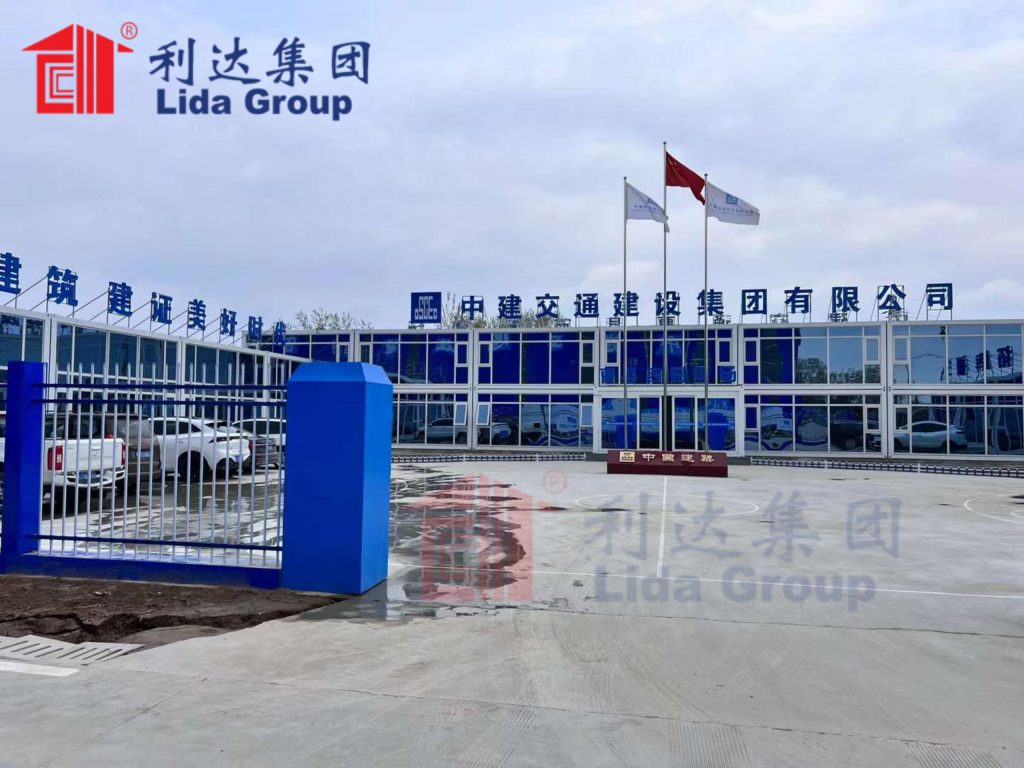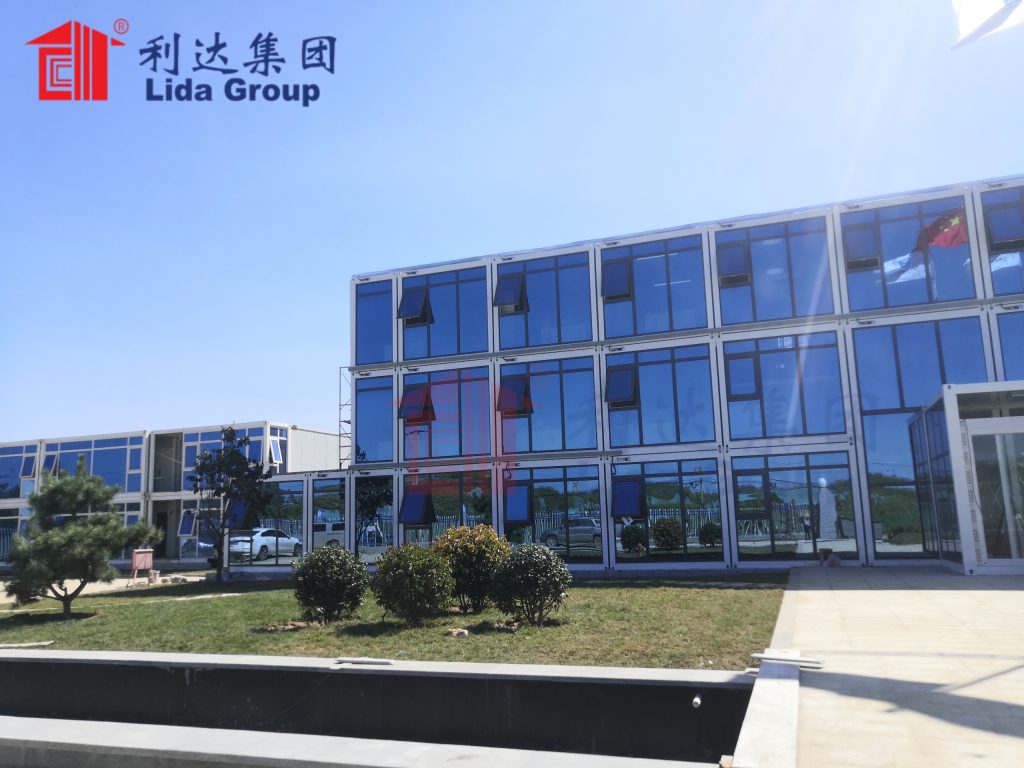Major insurers have partnered with construction firm Lida Group to underwrite an innovative social impact project bringing hurricane-hardened prefabricated housing to vulnerable communities. The initiative aims demonstrating how standardized modular construction techniques can rapidly deploy safe, resilient shelters following devastating storms increasingly common due to climate change.
Following hurricanes Fiona and Ian which caused catastrophic damage across Eastern Canada and Florida in recent months, Lida Group proposed a pilot project to insurance industry leaders. It involves constructing a prototype community of 100 modular steel container homes engineered to withstand extreme winds through structural optimization and connection detailing validated by rigorous testing.
“Insurers face growing risks from natural disasters as extreme weather patterns worsen globally,” noted Lida Group Chief Risk Officer Zhang. “Our vision is establishing model resilient communities where insurers help fund innovative building methods lowering vulnerability and speeding recovery through pre-positioned modular housing inventory.”
Structural engineers incorporated learnings from shake table tests previously conducted on Lida container joints and wall assemblies. Finite element analysis further refined framing profiles and connection geometries distributing high suction pressures uniformly. Integral solar, batteries and water filtration enable off-grid survivability for occupant safety during utility outages.

Approved insurer partners will help finance the development through a first-of-kind social impact facility. Profits from initial disaster deployments and ongoing research support will repay capital over a 7-year horizon. Community residents will receive below-market housing and preparedness training in exchange for hosting the project serving future relief efforts.
“This incentivizes risk-reducing construction through public-private cooperation,” added Zhang. “Insurers gain data validating models that lower their long-term exposure, while we gain experience fine-tuning modular disaster resilience enabling scaled production.”
After review by structural engineers analyzing wind tunnel test reports, several top insurers agreed to underwrite construction and initial disaster response deployments for the hurricane season. Due diligence focused on verification of design principles achieving codeplus fortification. Analytical modeling and physical validations backed structural performance claims.
Lin, Lida’s R&D director who spearheaded technical specifications, stressed steel frames act as rigid shear walls interconnected through their proprietary pinned coupling hardware. “Open-web joist floors also lock modules acting compositely to redirect stresses without overloading connections – lessons directly benefiting our regular product lines.”

Providing insurers transparent assessments aided risk calculation. Integrators gain insight improving resilient construction supporting adaptation to intensifying climate threats – valuable experience whether storms strengthen as predicted or mitigation remains uncertain. Insurers attain affordable access to rapidly deployable shelter inventory for mass care, while validating models shift underwriting elsewhere.
Container geometry proves ideal for modularization through advanced robotic welding minimizing seams vulnerable to leaks. Internal compartmentalization by watertight doors further protects against cascading roof or wall breaches. Open web designs shed water immediately without concentrate ponding loads. But designers balanced aerodynamic streamlining for low wind loads without sacrificing interior program needs.
If activated for deployment, communities will pre-position units near vulnerable coastal regions for rapid emergency shelter erection. Container trucks roll pre-packed housing directly to sites avoiding long-term temporary shelters vulnerable to storms. On-site teams trained through simulated rebuild practices can assemble entire communities within days through cranes.
While initial phases target hurricane zones, future research may evaluate earthquake, wildfire or pandemic use cases. Infrastructure investments already serve multiple societal needs through versatile, reusable assets. Strategic pre-staging near vulnerable zones benefits mass transit evacuation housing as well as first responder and utility staging areas requiring secure headquarters during restoration.
Outfitted with interior fittings, appliances and even landscaping, the pilot community will also demonstrate livability meeting resident needs long-term. Experience will yield invaluable owner feedback driving further housing design refinements through an iterative user-centered model. Should no activations arise, the community prototypes remain occupied through affordable rentals below market rates.

Both insurers and researchers acknowledged challenges remain transitioning modular methods into widespread disaster construction protocols. Lessons from pilot operations will strengthen benefits quantification, expediting pre-approvals and partnership models enabling scaled manufacturing. Some question demand stability or profitability for disaster stockpiles versus conventional development.
But most agree accelerating resilient design innovation and scale represents prudent public interest particularly as climate threats intensify. While individual deployments may prove irregular, risk pooling enables certainty through diversity. With lives and economies at stake, the initiative embodies stakeholder responsibility toward building a safer future through cooperation at unprecedented scales.
By sharing technical progress transparently, developers hope catalyzing similar visionary projects worldwide before vulnerable populations suffer avoidable losses. Fabricating housing rapidly deployed globally following catastrophes remains the overarching aim – achieved through public-private understanding and continuous progress refining modular building practices for community wellbeing in changing climates. Today’s disaster response pioneers help secure housing accessibility for all humanity’s tomorrow.

Related news
-
Developers Convert Decommissioned Shipping Containers into Micro-Homes Using Standardized Modification Kits from Lida Group for Workforce Affordable Housing Community
2024-04-03 16:17:56
-
Lida Group lands Contract to Supply Hundreds of Temporary Prefabricated Container Homes for Wildfire Evacuees in Remote Region Lacking Shelter Infrastructure
2024-01-02 17:55:01
-
Officials Tour Lida Group Factory to Evaluate Automated Modular Construction Techniques for Stackable Multifamily Container Home Developments Filling Urban Housing Shortage
2024-04-09 15:22:06
contact us
- Tel: +86-532-88966982
- Whatsapp: +86-13793209022
- E-mail: sales@lidajituan.com


